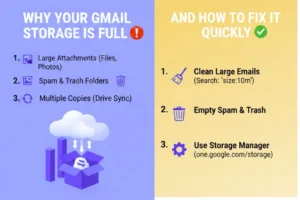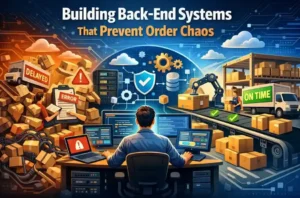The Internet is a constant stream of information, which can easily drown you if you don’t know how to structure it. An effective way to organize data is a necessary, though sometimes difficult, task. If you no longer want to load your memory with unnecessary reading markers from different platforms, applications, and books, but want to continue reading, Organizing Your Online Reading List is the perfect solution. With the right strategies, you can keep your digital content neat, easily accessible, and focused on what truly matters.
1. Use a Dedicated Reading App (And Stick to It!)
Jumping between bookmarks, email links, and random saved tabs? Not efficient. Apps like FictionMe help consolidate everything in one place. In the reading app from FictionMe, you can set tags, sort data, and even read offline. You can even switch between different devices and continue reading from the same place or read aloud. By concentrating your books in one place, you spend less effort searching for them, switching between books, and services.
2. Set an Expiration Date for Saved Articles
Honestly, how many of the articles you save do you read? Some studies show that 55% of people don’t spend more than 15 seconds on saved articles. And if you haven’t found time for an article or book in the last month, the likelihood that you’ll pick it up later drops dramatically.
- 7-day rule for casual reads
- 30-day rule for deep-dive materials
- Keep indefinitely: For evergreen resources
3. Use Browser Extensions to Save Smarter
If you’re storing helpful articles and books in a chaotic folder, you’re doing yourself a disservice. There’s a much more reliable way, like using browser extensions. Something like a notepad would be ideal, like Notion Web Clipper, Evernote, or Raindrop.io. Services allow you to save folders and categorize them with just a click.
4. Create a “Read Later” Ritual
No time to read? It will come eventually, but if you don’t plan for it, you’ll forget about it. A more rational approach is to set aside 15-30 minutes each day to read saved content, especially if there’s a long-term benefit to studying it. Chances are, you can find such a window of time without dedicating it to your personal space. Many people have time during their commute or break. Bonus hack: Turn on text-to-speech features in apps, so you get a podcast that doesn’t require you to focus your eyes, which means you can combine it with something else.

5. Adopt the “Three-Category Rule”
Clutter starts when everything is dumped into one massive list. All you need to succeed is sorting and using categories. For example, you can identify three key groups:
- Essential Reads
- Casual Reads
- References
6. Go Minimal: Keep Only What Matters
Ever heard of digital hoarding? It’s real, and it’s killing your productivity. Maybe it’s time to switch from saving every nice article to selective saving. You can set some criteria for yourself or ask yourself a couple of questions that will help you understand whether the game is worth the candle.
- Ask yourself: “Will I read this?”
- If it’s a duplicate topic, delete it.
- If it’s available elsewhere, consider skipping.
7. Leverage AI Summaries and Annotations
In 2025, AI-powered tools can offer help, for example, to summarize an article in a couple of seconds. Everyone chooses for themselves, deep immersion in the text or collecting key ideas.
- Use AI browser extensions: You may have heard of Glasp, TLDRThis, or Summarize. With one click, you can see short summaries of articles. You don’t have to go to each page separately.
- Automate summary emails: For example, Mailbrew uses AI to pick digests of the articles you’ve saved. It scans your inbox and gives you a summary of everything that might interest you. It’s a great time saver.
- Customize summary depth: You can choose between a deep analysis of articles or highlighting only the key points. AI lets you get exactly as much information as you want. Some services offer advanced functionality, such as annotations and comments. If you want to get comprehensive information in one place, this is what you need.
Final Thought: Less Clutter, More Reading
A well-organized reading list isn’t about saving more; it’s about innovative time management. Before us is a multi-component dish that consists of prioritizing content correctly, choosing the right tools, and remaining manageable; your future self will thank you.












